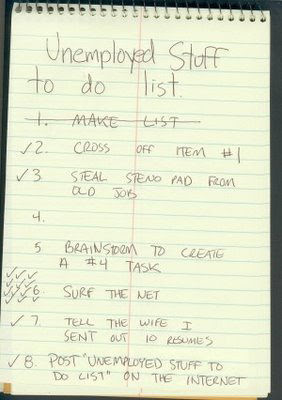 An interesting article written by Daniel Hamermesh appeared on Freakonomics during the week.
An interesting article written by Daniel Hamermesh appeared on Freakonomics during the week.Last night Jay Leno joked that only 500,000 people attended Bush’s second inauguration, while 2 million were at Obama’s. The reason, so he claimed, is that we now have so many more unemployed people. Good joke, but is it correct? How do unemployed people spend their time? How does unemployment affect time use in the entire economy? What is the lost output from unemployment, and what is the utility loss?
Several of these questions couldn’t be answered until now due to lack of data. A new paper provides some surprising answers. The unemployed use the time freed up from work for pay almost entirely in leisure and personal maintenance; they do no more household work than employed people. Similarly, in areas where unemployment is perennially high, there is less work for pay, more leisure, but no more household production.
But when unemployment suddenly rises, as in a recession, people shift from work for pay to household production; people don’t take more leisure time than before. So if we would measure output to include production at home, we would infer that a recession doesn’t reduce total output by as much as we thought; and perhaps the utility burden of a short recession is not as severe as one might imagine.
Original article
Several of these questions couldn’t be answered until now due to lack of data. A new paper provides some surprising answers. The unemployed use the time freed up from work for pay almost entirely in leisure and personal maintenance; they do no more household work than employed people. Similarly, in areas where unemployment is perennially high, there is less work for pay, more leisure, but no more household production.
But when unemployment suddenly rises, as in a recession, people shift from work for pay to household production; people don’t take more leisure time than before. So if we would measure output to include production at home, we would infer that a recession doesn’t reduce total output by as much as we thought; and perhaps the utility burden of a short recession is not as severe as one might imagine.
Original article
No comments:
Post a Comment